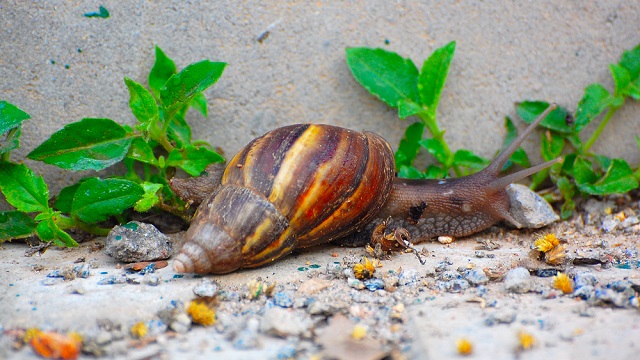Brian O’Neill on Submergence

Editor’s Note: I recently read and subsequently tweeted about Submergence, the new novel by J.M. Ledgard. Then I asked one of the smartest people I know – Brian O’Neill – if he would review the book for Waq al-waq. His review is below and it is my hope that he’ll continue to review books for us in the future. Stay tuned.
Submergence: A Review – Brian O’Neill
Since his debut with Badlands, reclusive filmmaker Terrence Malick has created movies that are more and more abstract, less plot-centered, with flitting, almost formless dialogue and voiceovers.
His movies are a mediation of man’s role in life, of nature’s impact on man, of the search for the spiritual, for a sense of the eternal in our short and often painful and increasingly distant from natured lives. His films are less movies than a sensory immersion into a series of unanswerable questions.
Reading J.M. Ledgard’s new Submergence, published in America this month, I often got the feeling that one gets watching latter-day Malick. Submergence is an exploration of the present, past, and future, of how we live, and how life lives around us, unconcerned with our relatively new and parasitic species. It is a book that is of the immediate present, but one that illuminates the yawning past from which we’ve barely dragged ourselves and also shines a shaky light on a dim and unknowable future.
This seems like a massive undertaking, but the book clocks in at a scant 200 pages, broken into dozens and dozens of short sections set in areas as disparate as a snowed-in French hotel overlooking a December-chilled Atlantic, the cruel and barren wastes of a hunger-stalked Somalia, and the bottom of a soundless sea, teeming with unimaginable life.
The plot, such as it is, revolves around two characters. One is James More, a descendent of Thomas, a former British paratrooper and current spy, posing as a water expert in scorching Africa. The other is Danielle “Danny” Flinders, of no particularly noble descent, but a child of French, Australian and Martinique heritage, a brilliant scientist, sexual tigress, child of the world, and connoisseur of the finer things in life.
Submergence opens with More in a dark jihadi hole in Somalia, obsessing over light and dark and the bugs and stench of his hole and his own body, which is increasingly becoming a stranger. There is no indication of how long he has been in the fetid, boiling cell, only that it is several moon cycles, at least. His memory keeps going back to meeting Danny at that French hotel.
We see the meeting from both their points of view, interrupted as these flashbacks are to More’s horrid present. They fall in love, her effusive about her work, he quiet about his. They have to part soon, but not before realizing that they are in love, and always will be.
The action continues, as More’s captivity shifts to flight with the jihadis, over the baking wastes of Somalia. He converses with them, is often beaten, and wanders through a world of outlandish cruelty, both by nature and by man. I do not want to give away plot, though there is not much of it.
Danny, meanwhile, is on a scientific expedition to the deeps of the Atlantic, where she is studying the creatures of the far deep, the teeming microbial life that creates itself and gathers and dies around ancient chimneys, heating the water from the earth’s magma, life that until recently we thought was impossible. She, we are told, is going to make a discovery, publish papers, that will forever change our meager and photocentric view of life.
And that is it, and that is its subtle brilliance. Through these disparate elements, Ledgard gives us a view of the world in a way that we rarely see. He makes the tiny chemosynthetic creatures at the bottom of a poisonous sea as important as the jihadists who dominate our headlines. It is tricky to make the phrase or the idea “we’re all connected” not sound like “we’re all connected, man”, but Ledgard pulls it off.
Nature wins. This isn’t a spoiler, but nature is going to win. Everyone is aware of that. In their conversations and private thoughts, Danny and More talk about man as the great despoiler, but, more sobering, as a blip, and nuisance for the planet, which will keep spinning long after we are forgotten. This echoes the dreams of the Somali jihadis, who dream of conquering the globe, but can barely navigate their barren land, who can’t collect enough rain to keep themselves alive, and who are plagued by hunger and bugs and the sun and their own superstitions.
Superstition plays a large role. Our heroes, as rational as they are, are haunted by the echo of legends and ancient fear. The Orpheus myth is hinted at several times, with the ocean substituting for hell. The jihadis are terrified of jinns, shadows of a pre-hominid time, fallen angels or devilswho trap and trick man and have turned their back on Allah.
The jinn, the reader comes to realize, are not terribly different than Flinder’s submerged microbial life, which were here before us and will be here until the sun explodes, and who live with without sun, thriving on poison, in ways we thought impossible. In one gripping scene, More is taken into a cave by the one captor who talks with him, a dark cave where the other fighters refuse to enter.
He is led to a deep, seemingly bottomless pit, which a terrified Saif explains is where the jinns live. More doesn’t believe in this, but, like all of us looking into an unknowable vastness, is equally scared. Saif, the fundamentalist, is scared by what he thinks he knows about the pit. More, the rationalist, by what he knows he doesn’t.
The unknown plays a part in one of the main themes, if man will keep existing or not. It is pretty goddamn certain that we have to change, or we will be just a moment. In one of my favorite passages, Danny reflects that “Homo Sapiens was either at the beginning of a very long journey, or close to the end of a short one. If it was to be an odyssey, the history that had passed since Sumer would come to seem priceless and savage. If it was to be a short venture, man’s mark would be the rubbish he had left in the ground.”
If the book has flaws, it is that you don’t get to really know the characters, which seems like a major flaw, but given the nature of the task, is not much of a problem. Danny, especially, seems a collection of successes, of enemies vanquished and challenges met. She comes off a little too perfect, as even her flaws- her lack of commitment and ability to dominate sexually- are admirable. If she weren’t a good and interesting person, she’d tilt into the kind of one-dimensional heroine that makes Ayn Rand novels so unreadable.
The other writer one is reminded of is Aldous Huxley, especially with Danny and More are in conversation- they are so eloquent and intelligent that they seem to be created and vessels for the writer to pour his philosophy. But when the philosophy is so rich and exciting, such complaints are little more than small beer.
Admitting bias, here- this book hits several sweet spots for me. Of course I have written a lot on Islamism and on jihad, and his description of the mental atmosphere rings true, if ungenerous (but that is also the POV of More, in death-haunted captivity). And I have always been deeply fascinated by the far deep, with its unholy creatures of bioluminescent wonders and terrors, of jagged-toothed angler-fish, of giant squid, and of creatures stranger than that, amorphous, unknown, impossible. Ledgard captures that in all its dark glory.
It is a strange book, both impossibly current and timeless. The death of bin Laden plays a background role, given his relationship to jihadists and his burial ground at the bottom of the sea (a convergence of themes which his publisher called “one of the great literary coincidences of recent times). There was a brief discussion, on Danny’s diving ship, of how a dead whale falls to fathomless depths and is devoured. One thinks of bin Laden, a man whose charisma and malevolence dominated the 21st century, drifting to the muck at the bottom, consumed by dumb starfish and hovering eels and trillions of microbes.
But, you know, we all will be, on sea or on land. We all submerge back into the earth, into the sea, recycling our atoms. Maybe there is reincarnation, maybe we’ll engineer our way into longer lives, maybe we can make permanent our consciousness, but in the end the body will die. It will turn to dust and ash and find its way into other creatures. If there is one theme that Ledgard hits, it is that we are not just on borrowed time, but we are atoms rented from the past and on loan from the future, with only a small sphere of nature-battered self-awareness to call our own. It makes me think of the last stanza in the madman poem of Humbert Humbert (a man who knew not a little about the agonies of time and flesh), in Lolita. This could be a fitting epigram for this small but important book.
And my car is limping, Dolores Haze
And this last long lap is the hardest
And I shall be dumped where the weeds decay
And the rest is rust, and stardust.





